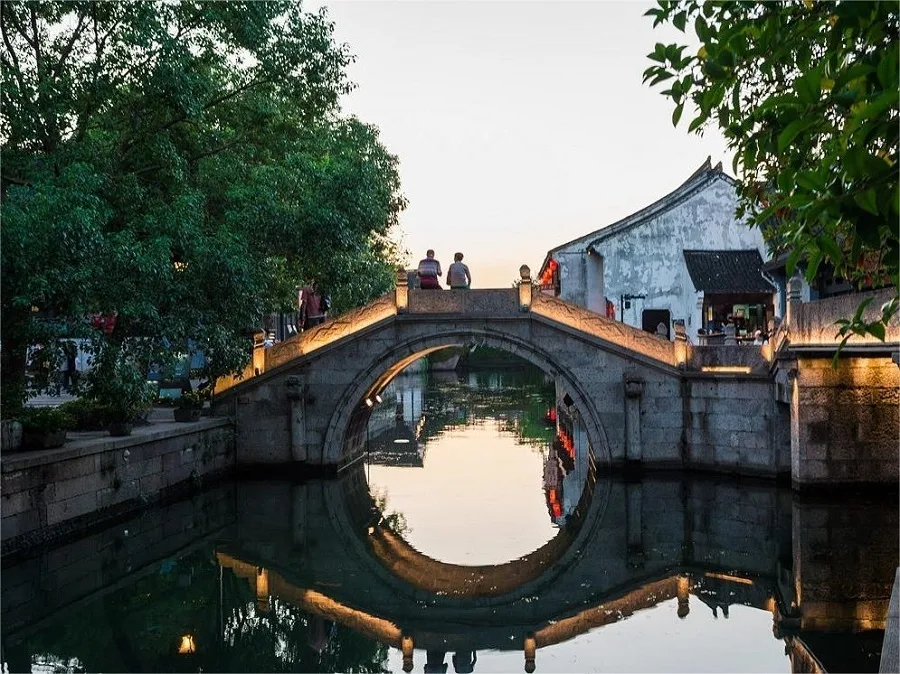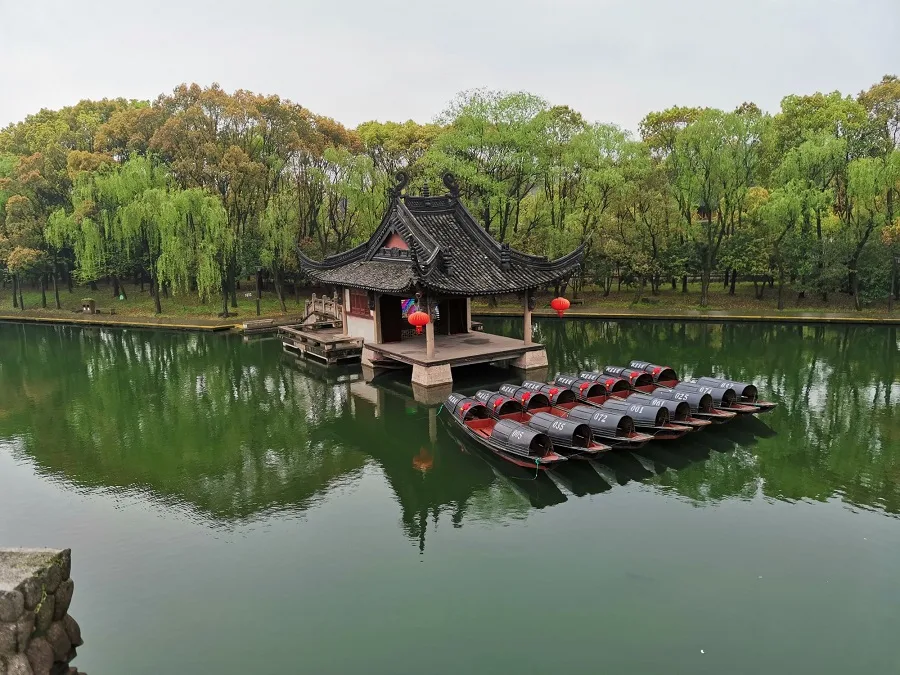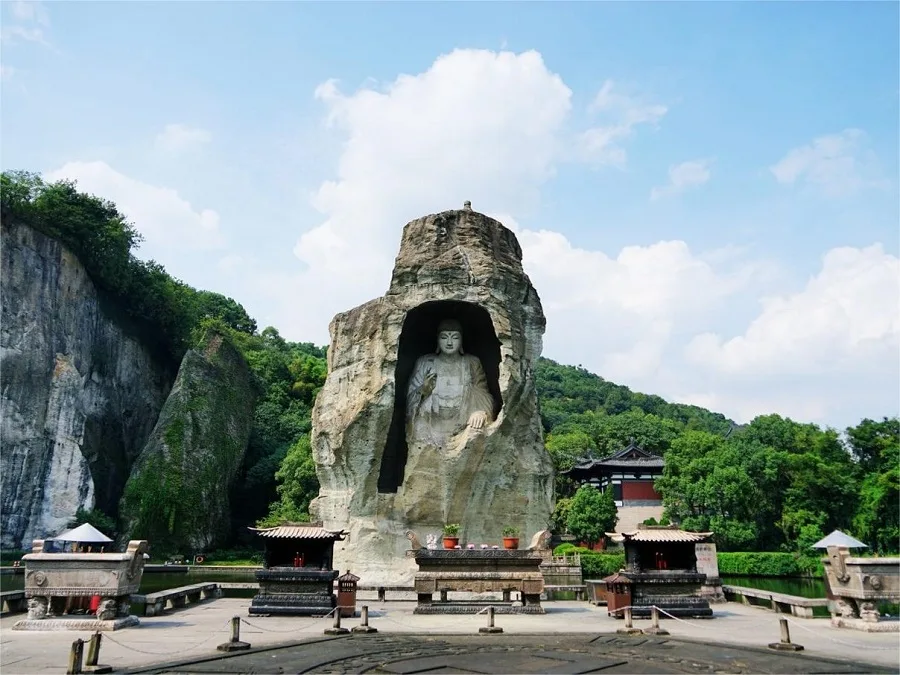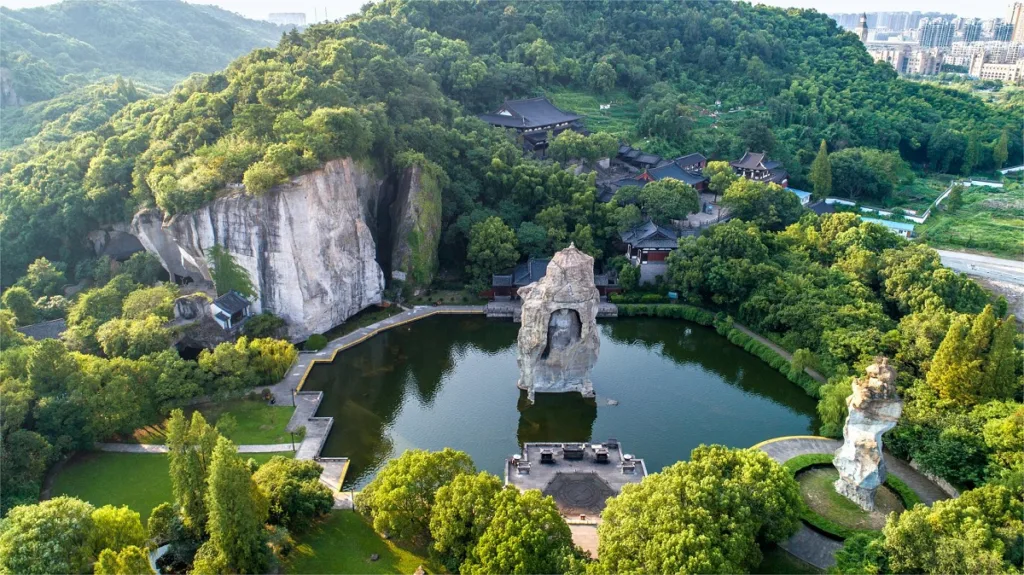Shaoxing Keyan Scenic Area (绍兴柯岩风景区), dating back to the Han Dynasty with over 1,800 years of history, spans a total area of 6.87 square kilometers. Since the Three Kingdoms period, it has been adorned with numerous natural landscapes such as stone walls and cliffs, shaped by generations of quarrying activities. During the Sui and Tang Dynasties, the unique stone formations and meticulously carved Maitreya Buddha were created through the efforts of three generations of stone craftsmen over a century. Over the centuries, embellished by natural scenery, religious culture, and the influence of literati, it evolved into the famous “Eight Keyan Landscapes” by the Qing Dynasty.
These landscapes include the Maitreya Buddha statue, Cloud Bone, Seven-Star Rock, and Silkworm Flower Cave, showcasing the beauty of the stone scenery, as well as Five-Bridge Strolling and Autumn Boating on Nanyang Lake, highlighting the charm of the lake scenery. It’s a treasure trove of tourism resources blending natural landscapes with cultural heritage. Today, the scenic area embodies the essence of ancient Yue culture, characterized by ancient quarry landscapes, including Keyan Rock, Jianhu Lake, and Luzhen Town.
Table of Contents
- Basic Information
- Location and Transportation
- Highlights of Keyan Scenic Area
- Vlog about Keyan Scenic Area
Basic Information
| Estimated Length of Tour | 1 day |
| Ticket Price | 100 RMB including the three sections and a boat ride |
| Opening Hours | 8.30 – 17.00 (1st May – 30th September) 8.30 – 16.30 (1st October – 30th April) |
| Telephone Number | 0086-0575-84367863 0086-0575-84361555 |
Location and Transportation
Keyan Scenic Area is located at 558 Keyan Avenue, Keqiao District, Shaoxing, Zhejiang Province, China. To get there, you can take bus 177A, 177, 805, 805A, 817, 818A, 818, 820, 828A, 828, 832A, or 857 and get off at Keyan Scenic Area Stop (柯岩景区站).
Highlights of Keyan Scenic Area
Luzhen Town

Luzhen Town encapsulates the essence of traditional water towns in Shaoxing, resembling a living picture of the region’s past. Inspired by the works of Lu Xun, it recreates the fictional hometown depicted in his novels, such as “Blessing,” “Hometown,” “The True Story of Ah Q,” and “Diary of a Madman.” With its traditional tiled-roof houses, diverse stone bridges, meandering waterways, and quaint shops, Luzhen epitomizes the folk customs and architectural charm of old Shaoxing. Divided into five zones – Traditional Dining, Traditional Shops, Leisure Showcase, Traditional Residences, and Waterway Tour – it offers a comprehensive experience blending sightseeing, dining, shopping, accommodation, leisure, and entertainment.
Jianhu Lake

Spanning an area of 1.47 square kilometers, Jianhu Lake has a history of over 1,800 years. Comprising 48.7% water surface, it is one of the three major scenic areas within the Keyan Scenic Area. Notable attractions include the Eastern Han Flute Pavilion, Nanyang Autumn Boating, Five-Bridge Strolling, and the Gourd Drunken Island. Adjacent to the Keyan Rock, Jianhu Lake harmoniously combines mountains and water. Visitors can embark on boat rides across the lake aboard traditional black-covered boats or elegant boats reminiscent of those once ridden by luminaries like Lu Xun, Sun Yat-sen, and Zhou Enlai. Floating leisurely on the water, guests can immerse themselves in the tranquil charm of the “scenery in the mirror.” Additionally, attractions on the lake’s islands, such as the Hushang Wine Tower and the Water Sculpture of Laboring with Wine, showcase Shaoxing’s renowned wine culture to both domestic and international visitors.
Keyan Rock

Situated to the south of Jianhu Lake and connecting to Keqiao Ancient Town to the north, Keyan Rock has a history of over 1,000 years since the Sui and Tang dynasties. The name “Ke” comes from “Keting,” or pavilions built by ancient people. These pavilions, built with branches as beams, bamboo as columns, and thatched roofs, epitomize the simplicity and originality of early construction. Keyan Rock is famous for its unique rock formations, which are not naturally occurring but rather the result of stone mining activities dating back to the Three Kingdoms period. The superior quality of the stones from Ke Mountain led to its fame as a stone quarry for over 400 years. Notable features include the “Divine Buddha” and the “Miraculous Cloud Stone Bones.” The “Divine Buddha,” carved during the Sui Dynasty and completed over three generations of stone workers, is impressive in scale. The “Miraculous Cloud Stone Bones” resemble an inverted pagoda, standing over 30 meters tall with a base circumference of only 4 meters.

